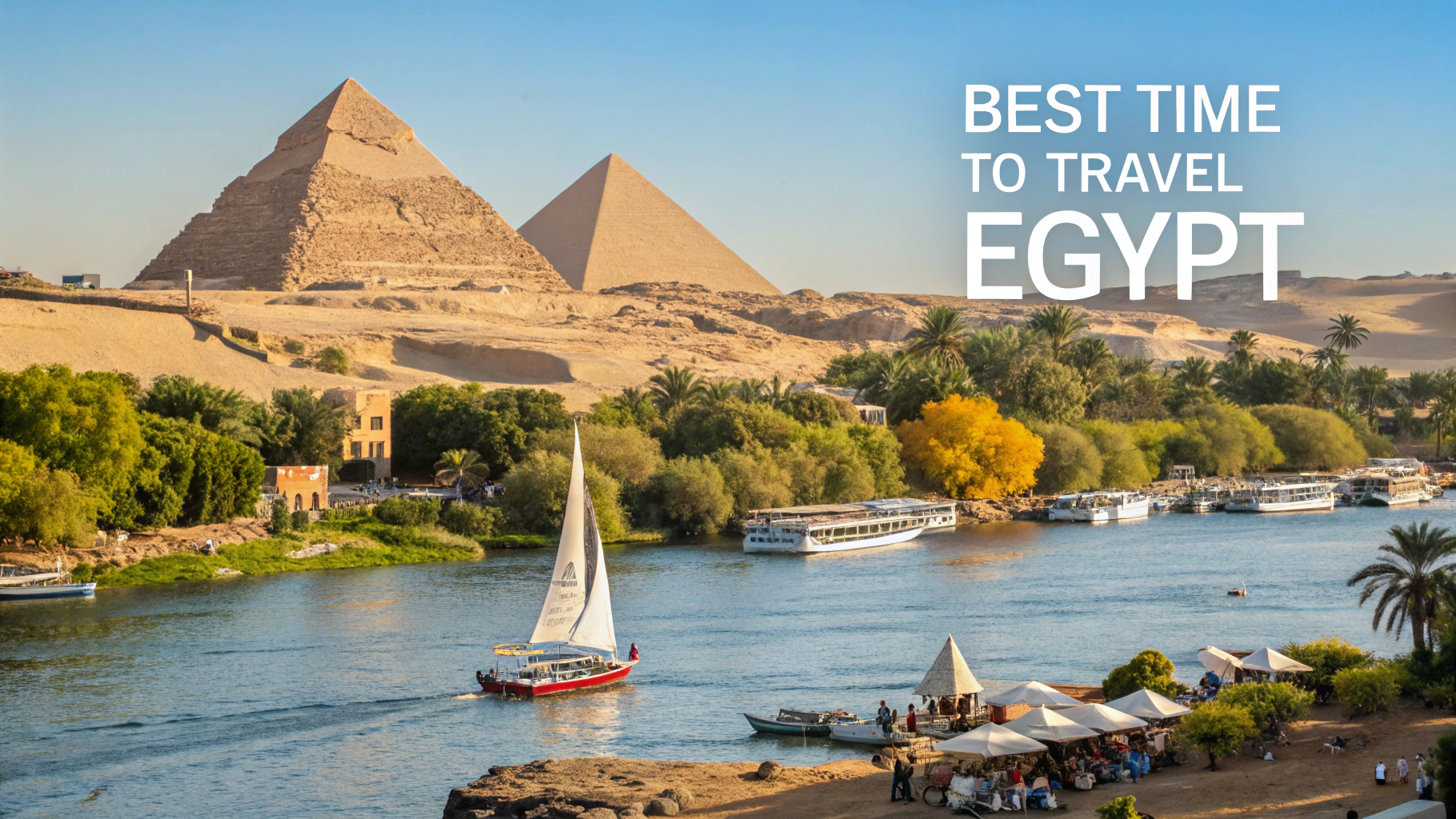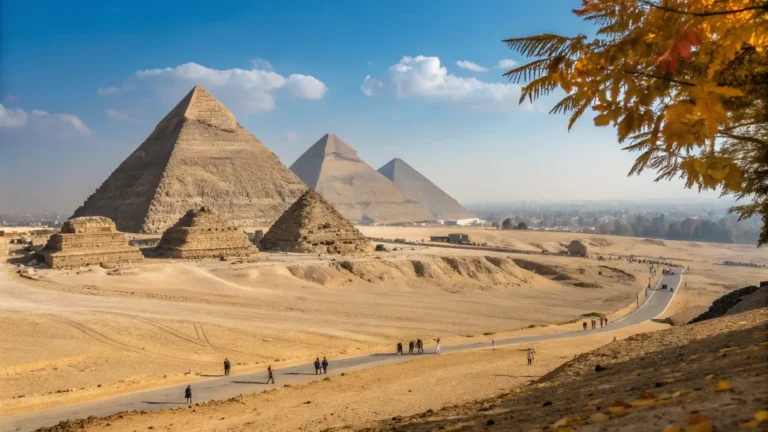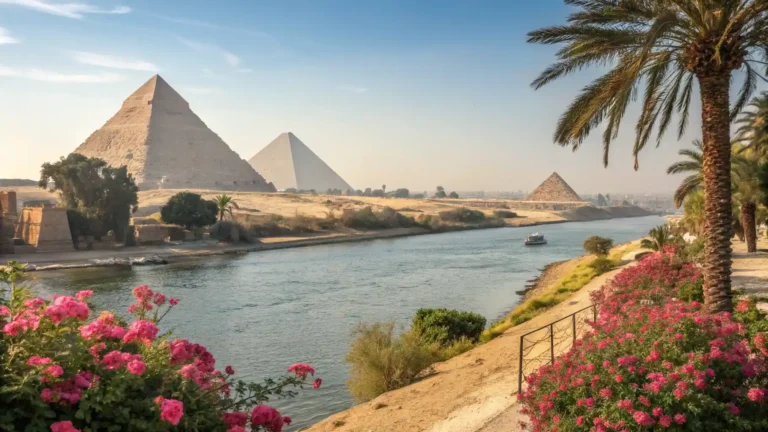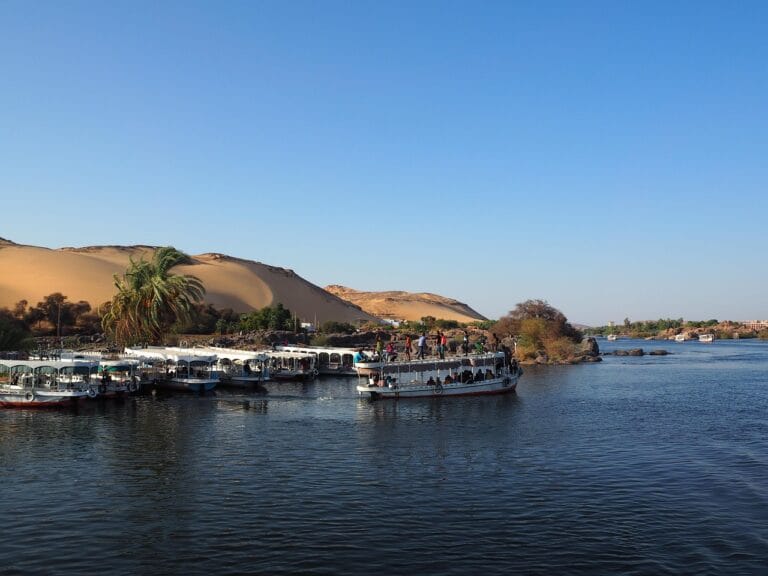Best Time to Travel to Egypt: 7 Reasons Why It’s Perfect in Spring!
Look, I’m gonna be straight with you – if you’re wondering about the best time to travel to Egypt, I’ve got some insider knowledge that might surprise you. After spending countless hours sweating through Egyptian summers and shivering in desert winters (yes, it gets cold!), I can confidently say that spring is when this ancient land truly shines. And I’m not just talking about avoiding the tourist hordes – though that’s definitely a bonus.
Why Spring Beats Every Other Season in Egypt
Here’s the deal: Egypt in spring (March through May) is like finding that perfect temperature on your shower – not too hot, not too cold, just right. While summer tourists are literally melting at the pyramids with temperatures soaring above 40°C (104°F), and winter visitors are packing unexpected sweaters for chilly desert nights, spring travelers are living their best life.
The Egyptian Meteorological Authority reports that spring temperatures hover between 20-30°C (68-86°F) – ideal for everything from exploring tombs to lounging by the Red Sea. But temperature is just the beginning of why spring dominates.
7 Compelling Reasons Spring is Egypt’s Golden Season
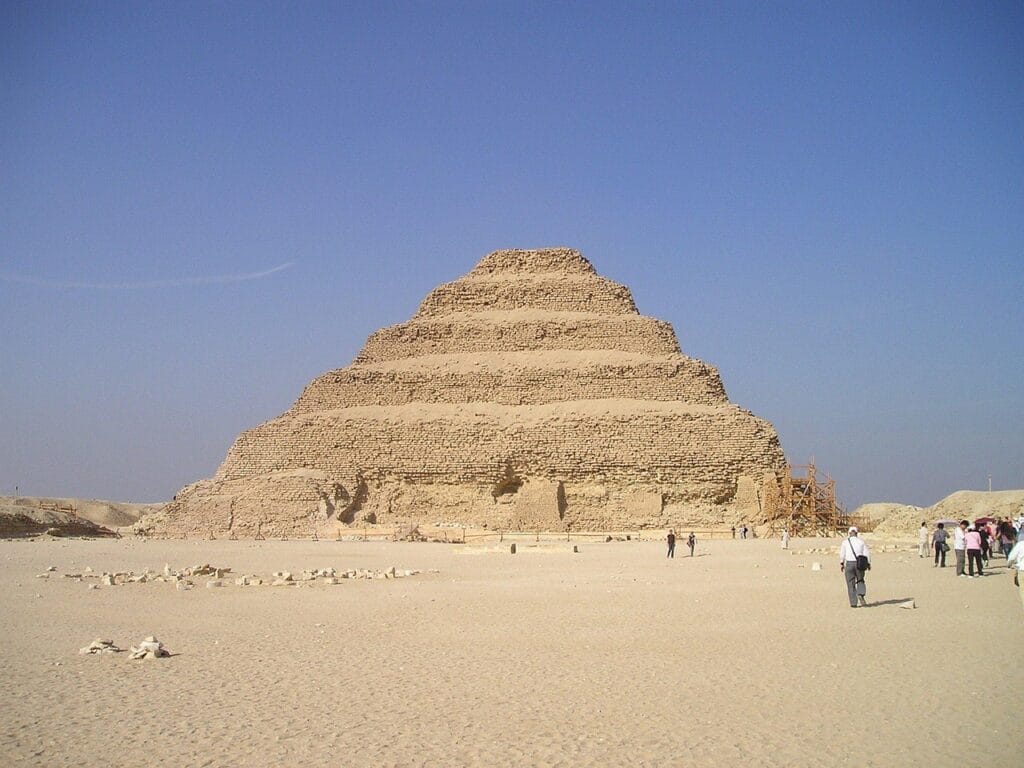
1. The Weather is Actually Bearable (No, Really!)
Remember when I mentioned sweating through summer? Picture this: standing in line at the Valley of the Kings in July, with the sun beating down at 45°C (113°F), no shade in sight, and feeling like you’re slowly being mummified yourself. Not fun.
Spring changes everything:
- Daytime temps: 25-30°C (77-86°F) in most areas
- Evening temps: 15-20°C (59-68°F) – perfect for dinner cruises
- Humidity: Low to moderate (goodbye, sweat-soaked shirts!)
- Rain: Practically non-existent (less than 5mm monthly average)
2. You Can Actually See the Pyramids Without Fighting Crowds
Tourism statistics from Egypt’s Ministry of Tourism show that spring sees about 30% fewer visitors than peak winter months (December-February). What does this mean for you?
- Shorter lines at major attractions
- Better photo opportunities without strangers photobombing
- More intimate experiences at temples and tombs
- Hotels and tours at 20-40% lower prices than peak season
I’ll never forget having Abu Simbel almost to myself one April morning – try getting that experience in January!
3. The Nile is at Its Most Photogenic
Spring coincides with the Nile’s moderate water levels, making it the optimal time for river cruises. The riverbanks are lush and green from winter rains, creating stunning contrasts against the golden desert backdrop.
Pro tip: Book your Nile cruise for late March or early April when:
- Water levels are perfect for navigation
- Sunset views are spectacular (around 6 PM)
- Evening temperatures make deck dining magical
- Wildlife is more active along the banks
4. Desert Adventures Without the Extreme Temperatures
Want to camp in the White Desert or explore the Western Desert oases? Spring is your window. Desert temperatures in summer can literally be life-threatening (I’m talking 50°C/122°F in the shade – if you can find any). In winter, nighttime temps can drop below freezing.
Spring desert experiences offer:
- Comfortable camping conditions (15-25°C at night)
- Clear skies perfect for stargazing
- Active wildlife sightings
- Blooming desert flowers (yes, they exist!)
5. Red Sea Diving and Snorkeling at Its Prime
The Red Sea in spring hits that sweet spot – warm enough for comfortable swimming (24-26°C/75-79°F) but not yet reaching the bath-water temperatures of summer. Marine life is particularly active, with many species in their mating seasons.
Diving conditions in spring:
- Water visibility: 30-40 meters
- Minimal currents
- Manta ray season (March-May)
- Whale shark sightings increase
- Coral spawning events
6. Festivals and Cultural Events Galore
Spring in Egypt means festival season! From ancient celebrations to modern cultural events, there’s always something happening:
- Sham el-Nessim (Spring Festival): Ancient Egyptian celebration still observed today
- Abu Simbel Sun Festival (February 22): Technically late winter but close enough
- Coptic Easter: Elaborate celebrations in Cairo and Upper Egypt
- International Camel Racing Festival: Usually held in March in various locations
7. Your Body (and Budget) Will Thank You
Let’s talk practical benefits. Spring travel to Egypt means:
Health advantages:
- Lower risk of heat exhaustion
- More comfortable for elderly travelers or those with health conditions
- Less need for constant hydration
- Reduced sun exposure risks
Budget benefits:
- Hotel rates 20-40% lower than winter peak
- Shoulder season flight deals
- Less demand = better negotiating power
- Off-season rates for guided tours
When Exactly Should You Book Your Spring Egypt Trip?
After analyzing weather patterns, tourist data, and my own experiences, here’s my month-by-month breakdown:
March: The Early Bird Special
- Pros: Lowest prices, beginning of perfect weather
- Cons: Occasional sandstorms (khamsin winds)
- Best for: Budget travelers, desert expeditions
April: The Sweet Spot
- Pros: Ideal weather everywhere, moderate crowds
- Cons: Prices starting to rise for May holidays
- Best for: First-time visitors, comprehensive tours
May: The Late Spring Bonus
- Pros: Warm sea temperatures, extended daylight
- Cons: Getting hotter, especially in the south
- Best for: Beach lovers, diving enthusiasts
Addressing Common Spring Travel Concerns
“But what about sandstorms?”
Yes, khamsin winds can bring dust storms in March and April, but they’re typically brief (1-2 days) and more inconvenient than dangerous. Hotels are well-prepared, and it’s actually quite an experience!
“Is it too hot for older travelers?”
Not at all! Spring temperatures are actually ideal for travelers of all ages. Just avoid midday sun (11 AM – 3 PM) and stay hydrated.
“Will everything be open?”
Absolutely. Unlike some destinations with seasonal closures, Egypt’s attractions operate year-round. Spring actually sees extended hours at many sites.
Making the Most of Your Spring Egypt Adventure
Here’s my tried-and-tested spring packing list:
- Light, breathable clothing (cotton/linen)
- A light jacket for evenings
- Comfortable walking shoes
- High-SPF sunscreen (the sun is still strong!)
- Sunglasses and hat
- Modest clothing for religious sites
Daily planning tips:
- Start early (7-8 AM) to beat any crowds
- Take midday breaks (perfect for pool time)
- Plan outdoor activities for morning or late afternoon
- Book dinner cruises for sunset timing
The Verdict: Why I Keep Returning to Egypt in Spring
Look, I’ve traveled to Egypt in every season, and spring wins hands down. It’s not just about comfortable weather – it’s about experiencing Egypt as it should be experienced. No rushing through sites to escape the heat, no missing sunrise at Abu Simbel because it’s too cold, no fighting through peak season crowds for that perfect pyramid photo.
The best time to travel to Egypt isn’t just about picking dates on a calendar; it’s about maximizing your experience while minimizing discomfort and cost. Spring delivers on all fronts.
Ready to Experience Egypt’s Perfect Season?
Whether you’re planning your first trip to Egypt or your fifth, choosing spring means choosing comfort, value, and unforgettable experiences. From the bustling streets of Cairo to the serene temples of Luxor, from the coral reefs of the Red Sea to the endless dunes of the Sahara, spring showcases Egypt at its absolute best.
So what are you waiting for? Start planning your spring Egyptian adventure now – your future self will thank you when you’re sipping tea on a felucca while others are melting in the summer heat. Trust me on this one; spring in Egypt isn’t just good, it’s transformative.
Have you visited Egypt in spring? Planning your first trip? Drop a comment below and let’s chat about making your Egyptian dreams come true!

